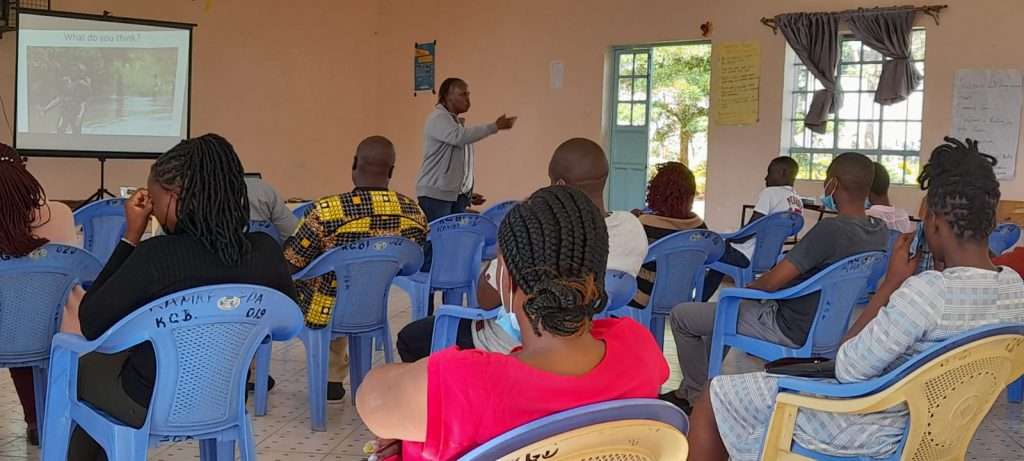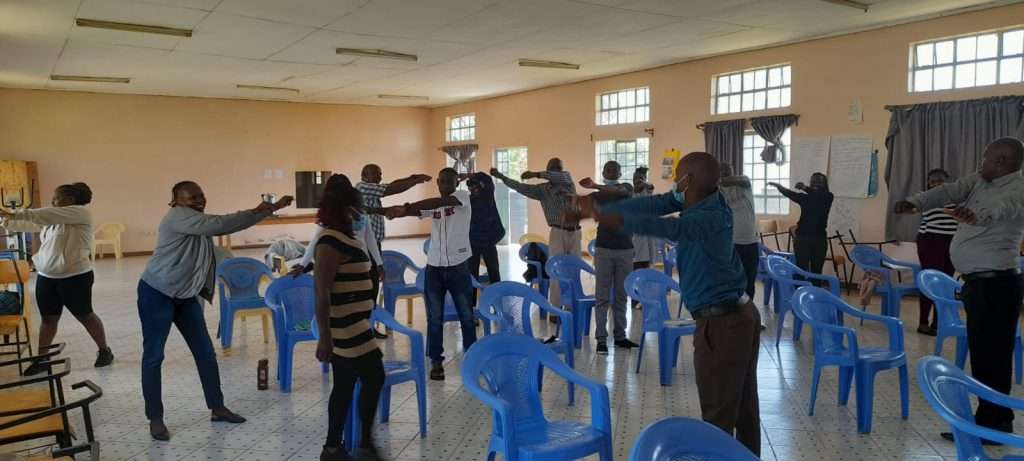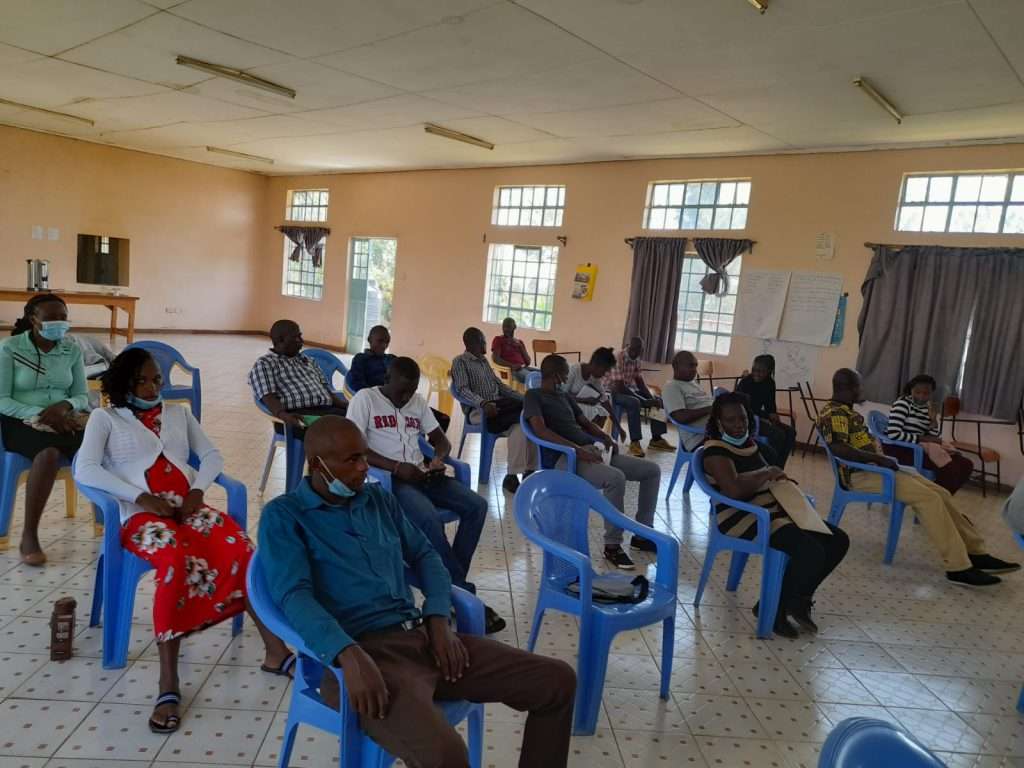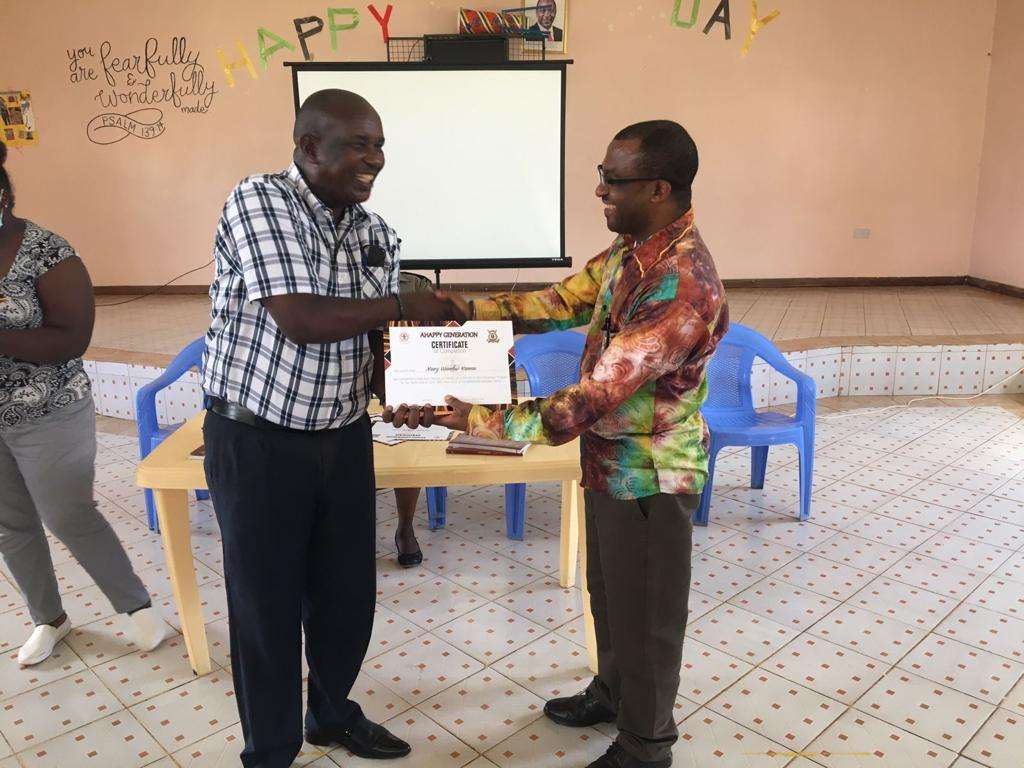
AJAN Ministry in the prisons proceeds as Prison officers are trained
“I am much better prepared to engage the imprisoned youth now. I am now aware about the changes the youth are undergoing because it shows through their emotions and irritability. I have learnt more about values, virtues, and principles. Something else that came out strongly for me is that lasting success in life comes through obedience of these values”, said Maneno as he described his experience of the AJAN HIV and AIDS Prevention Programme for Youth-AHAPPY. His sentiments were shared by other participants of the training held by AJAN, which started on Monday 22nd November and ended on 24th November 2021.
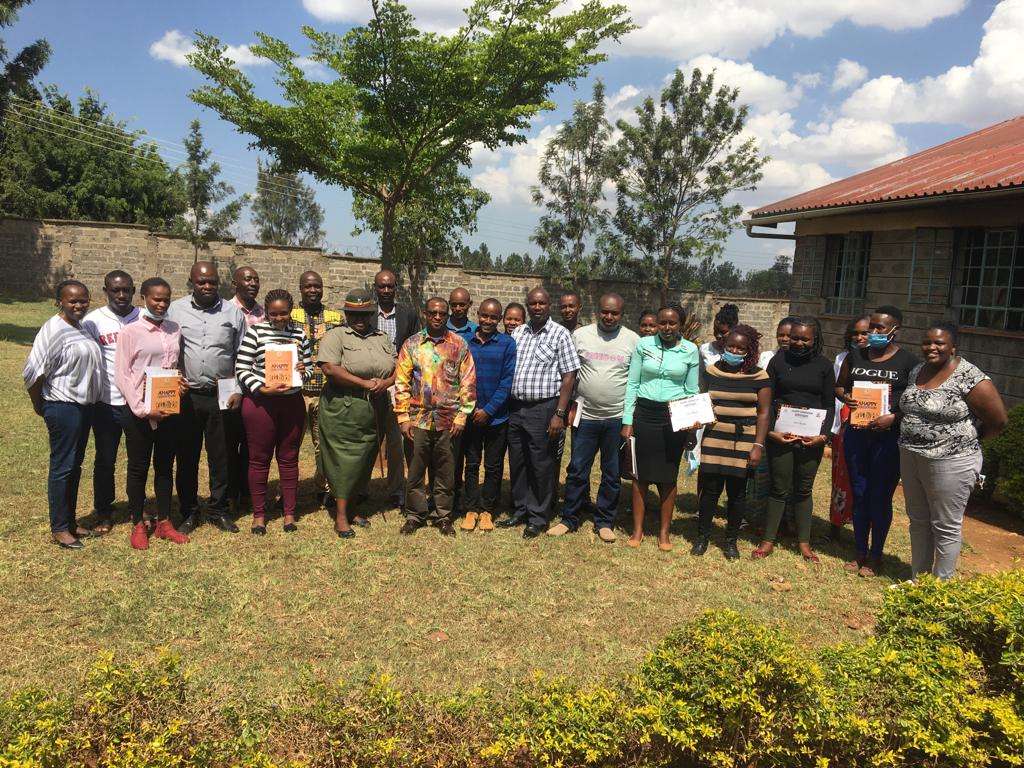
The African Jesuit AIDS Network secretariat team of Fr. Matambura Ismael, Pascalia Sergon, and Caleb Mwamisi took over 20 prison officers, who oversee the custody of hundreds of youths at juvenile institutions at the Kamiti Prison establishment in Nairobi, through a participatory learning process that lasted three days. The two institutions are Kamae Girls Borstal Institution, and the Youth Correctional and Training Centre- YCTC where girls and boys serving jail terms or in remand are confined.
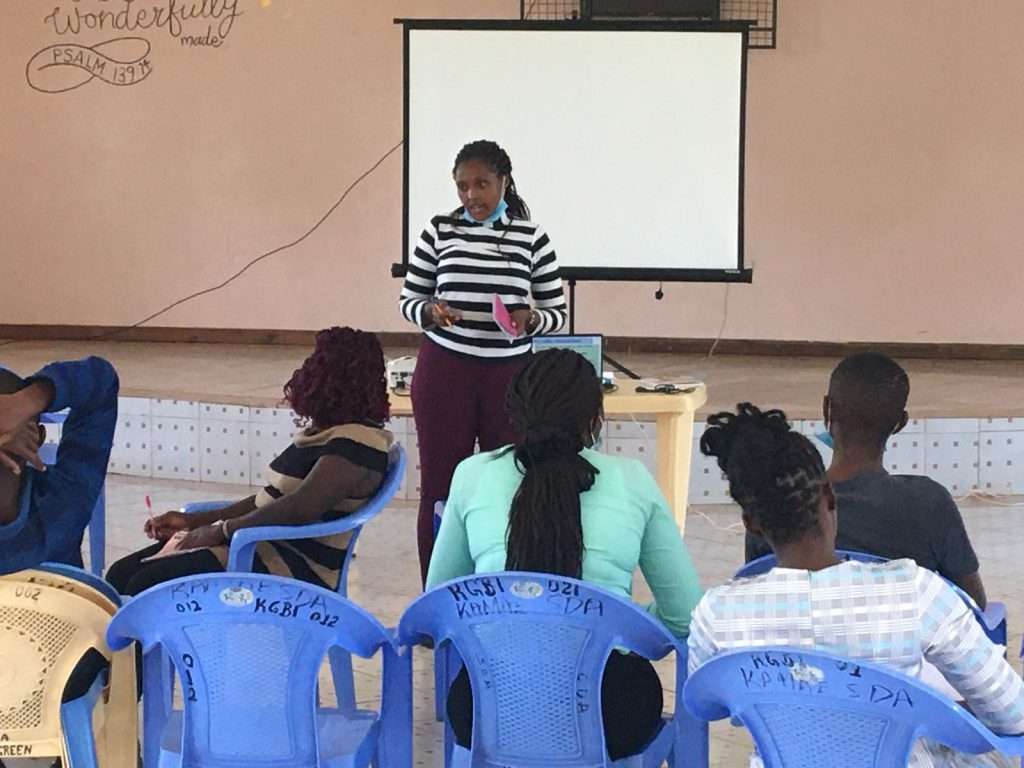
While the work of prison officers is primarily that of ensuring that the juveniles remain safely in custody, it had been the agenda of AJAN to reach the officers to empower them with life skills that will further prepare them for their roles, particularly to install the reflective intent of truly impacting the young lives positively.
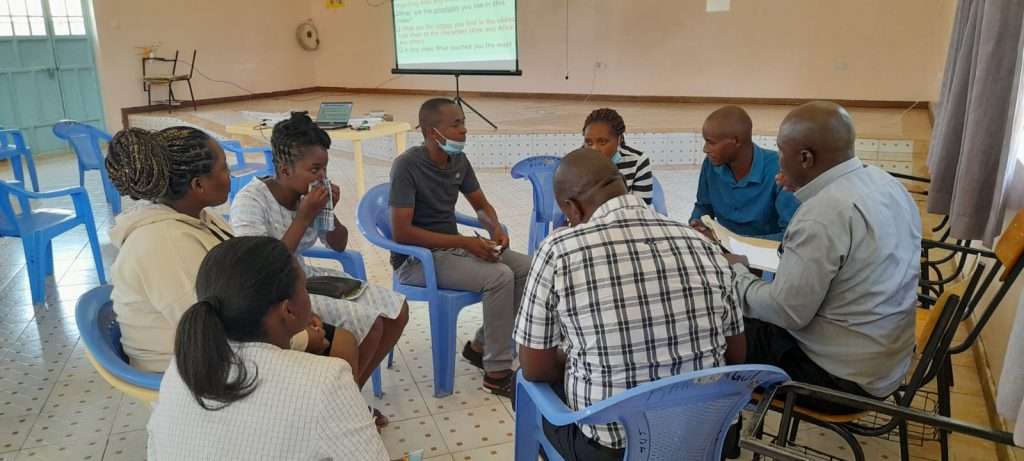
“I now know how to mentor the girls here at Kame Borstal institution, and how to help them to realize their talents.”, Lydia Mwangi, an officer reacted. Evans Odhiambo, an officer tasked with the welfare of juveniles at YCTC said that “this training has helped me to change my mind on how to deal with boys. I am more concerned now about the emotional aspect of boys. I now understand that it is good to take time to listen to the boys and understand them thoroughly even before I can make any effort geared towards helping them to register positive change. I have changed my mindset. I have been equipped with skills to relate with boys who have had difficult pasts.”
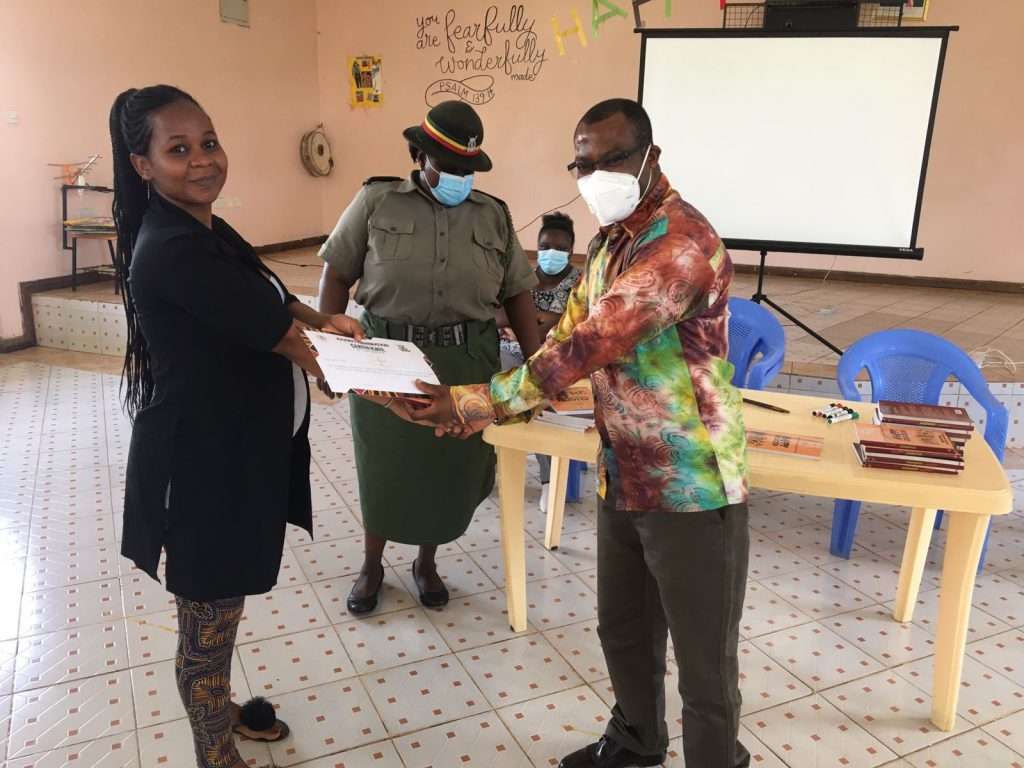
Alice Gakuo, another officer based at Kamiti, one of Kenya’s nine maximum prisons, said she developed a critical realization that the young people will have started out on a good footing like any other people. “Maybe they ran into the headwinds of peer pressure and so on. My job is to give them hope, and impart skills in them so that they can become even better people than they were before they came here.”, she explained.
Martin Bethuel Munala was also grateful for the AHAPPY sessions. “I have learnt about effective communication. It is important to understand their issues and to take this positively so as to help them. I have learnt more about HIV/AIDS matters. I can help youths out of prison as well, showing them a good example as a parent.”, he weighed in after the training.
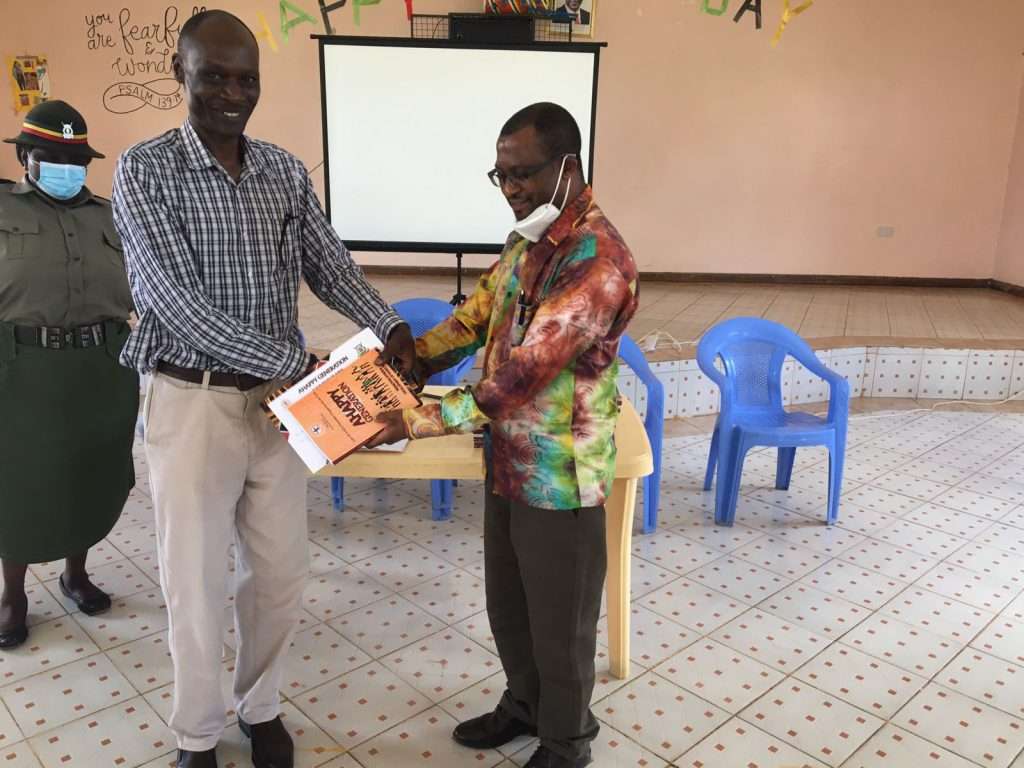
The trainers’ presentations revolved around the five modules of the AHAPPY manual, which enabled the prison staff to understand the five dimensions of a human being that are central to the integral development of youth as guided by the Jesuit principle of cura personalis. The trainers were keen to transfer skills that would provide solutions towards overcoming the pitfalls of life from an individual level, but skills that can boost relationships between an individual, and other members society. “You cannot give what you do not have”, a trainer observed during a session, as the important approach of role-modelling featured.
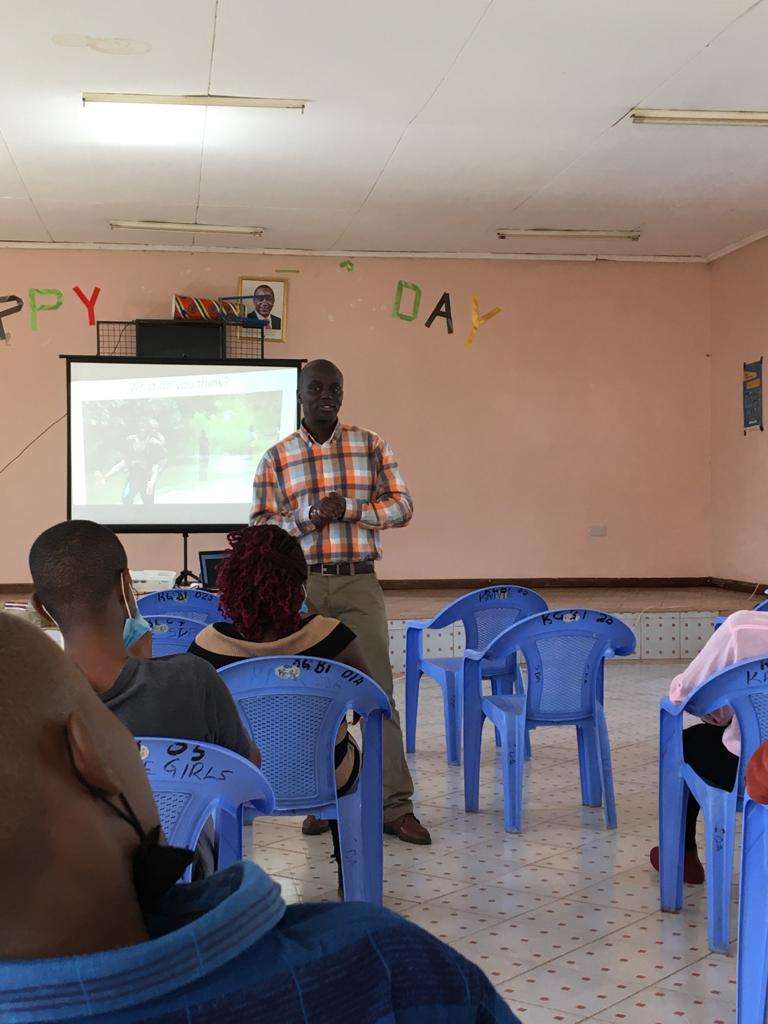
The team was blessed by the visit of Mr. Smith, a former jailbird at Kenya’s Shimo la Tewa prison but who underwent a conversion after getting fed up with a life of crime, and who is a successful businessman today. Smith narrated his story to the officers and encouraged them that it is possible to have the lives of the incarcerated youths change for the better. In the prison, Smith discovered his talent in engineering, and he would later pursue courses in aeronautical engineering at Wilson airport. Generally, he became proficient in fixing a wide range of machines a way in which he has been able to earn a living.
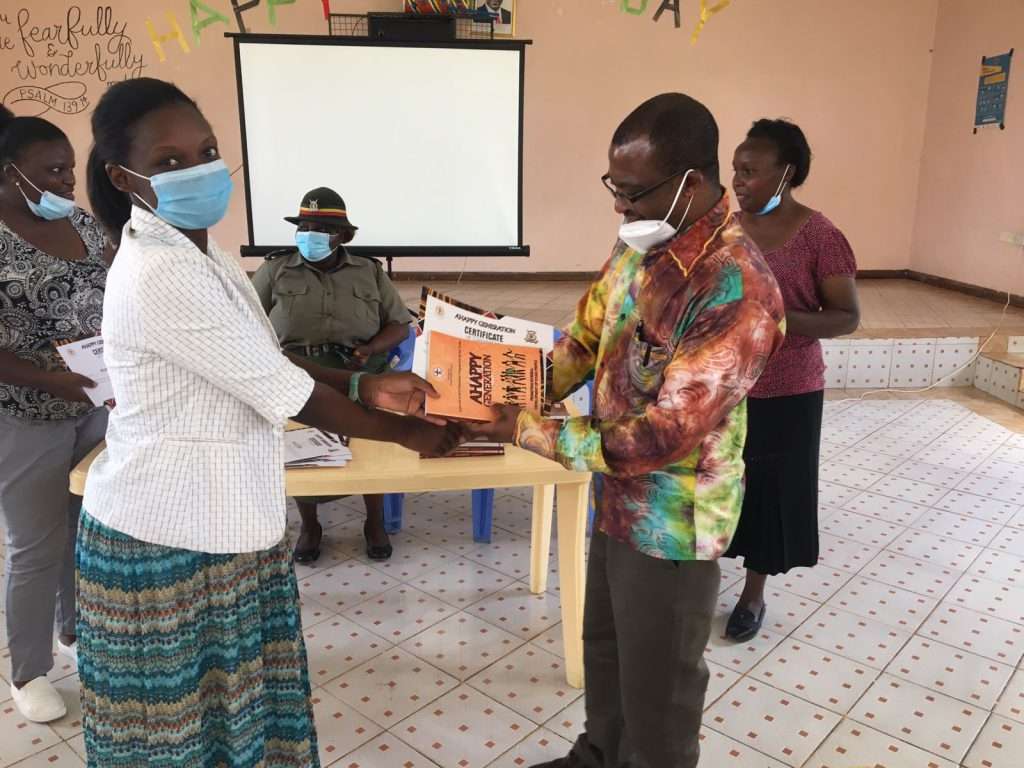
The deputy officer in charge at the YCTC, Nelius Muchoya, was on hand to encourage the officers to put into practice the skills they borrowed for the AJAN team and to help transform the minds of the youths who will have undergone difficult pasts. “Gaining more knowledge continuously is important. Indeed, it led me to rise through ranks to where I am today. These kinds of trainings are important in many ways”. She declared the training closed but she was optimistic that Kamiti prison’s partnership with AJAN will continue growing to the advantage of the inmates and the institution.
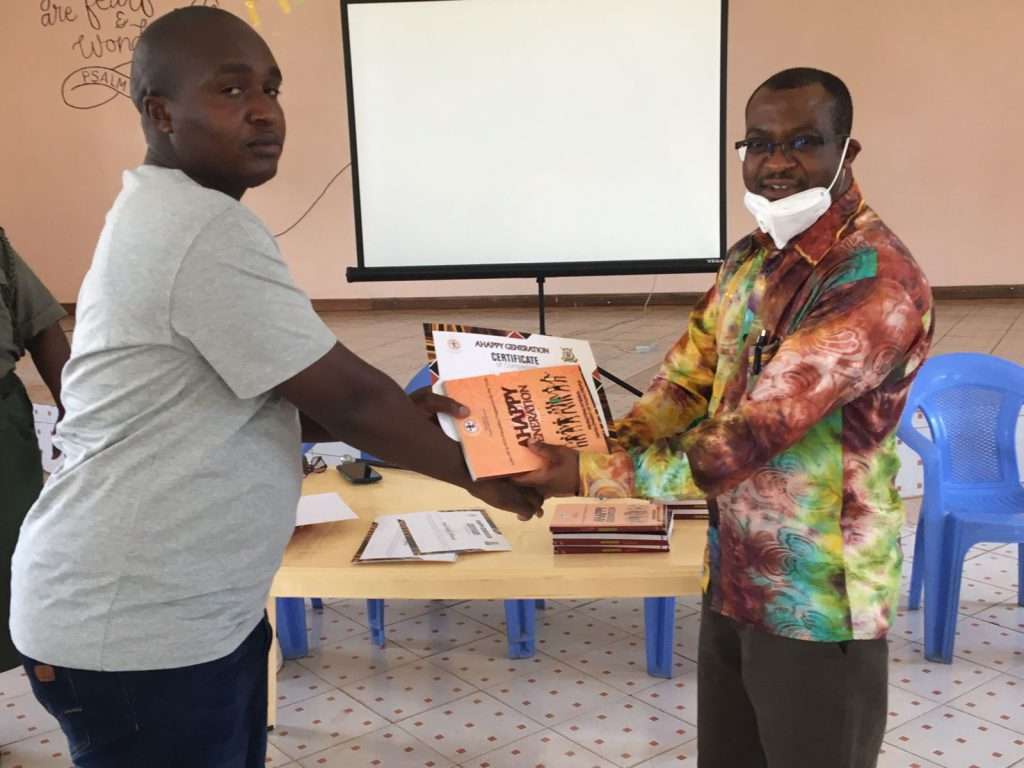
Fr. Matambura, thanked Kamiti Prison for the opportunity granted to AJAN to reach the officers and juveniles and promised that the work will continue. He encouraged the officers to implement the knowledge they have received from the training. Together with Nelius Muchoya, he awarded AHAPPY certificates as souvenirs of the training to all the participants.
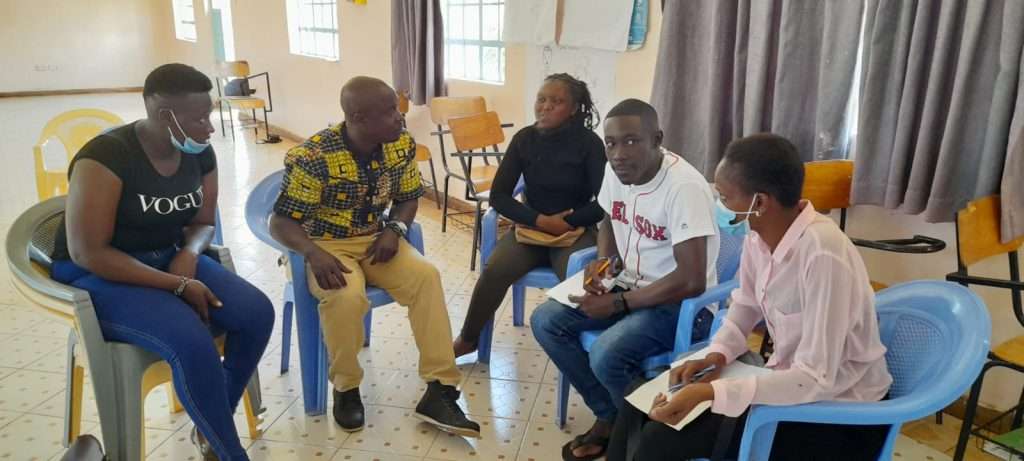
The agenda of AJAN this year has been to ensure a process where the youth can be able to ‘see all things new in Christ’. This is brought out in various ways, with the impacting of one mind at a time. It could be that of a trainer, or that of a learner. Journeying with the youth involves preparing the people who related with them directly for the noble work. These are teachers, catechists, and others. This time, it was prison officers.
